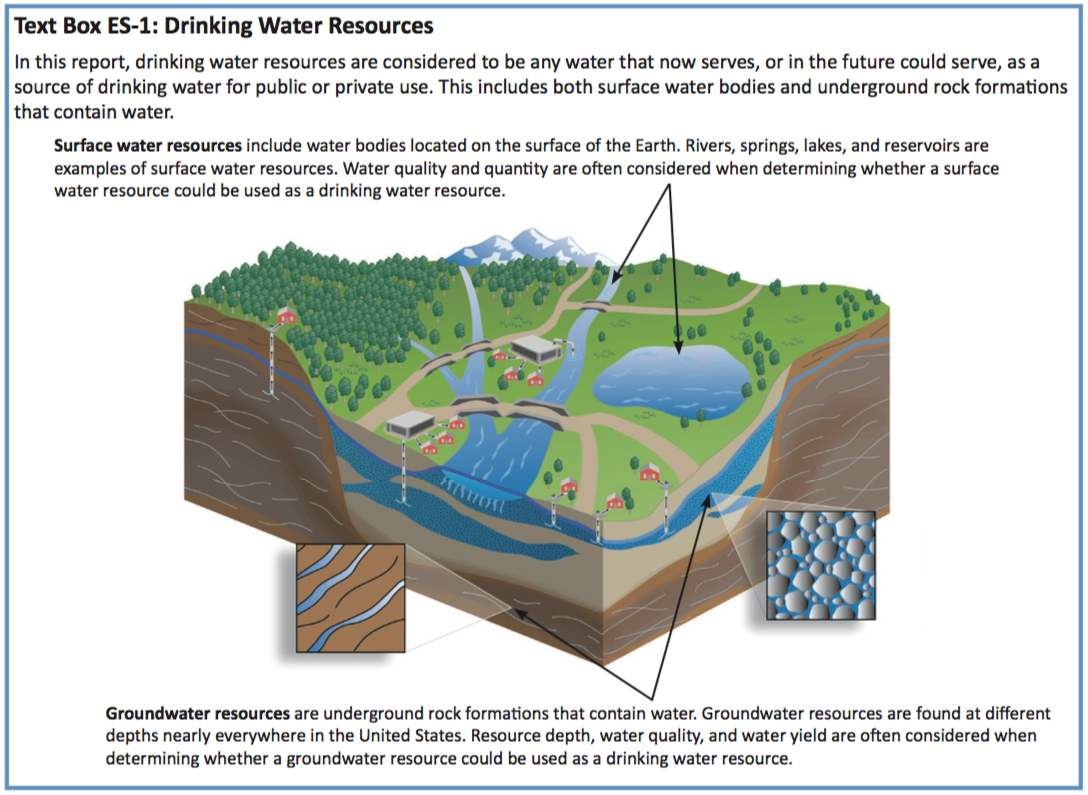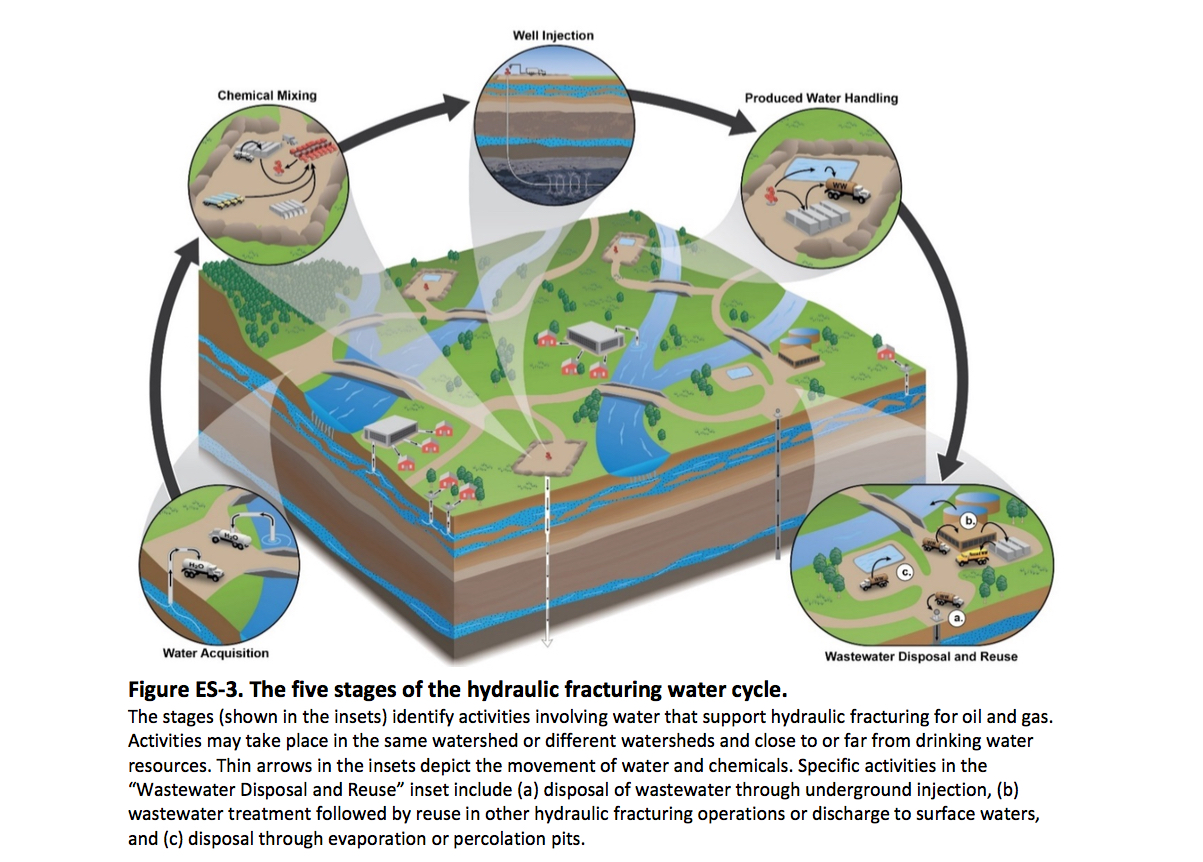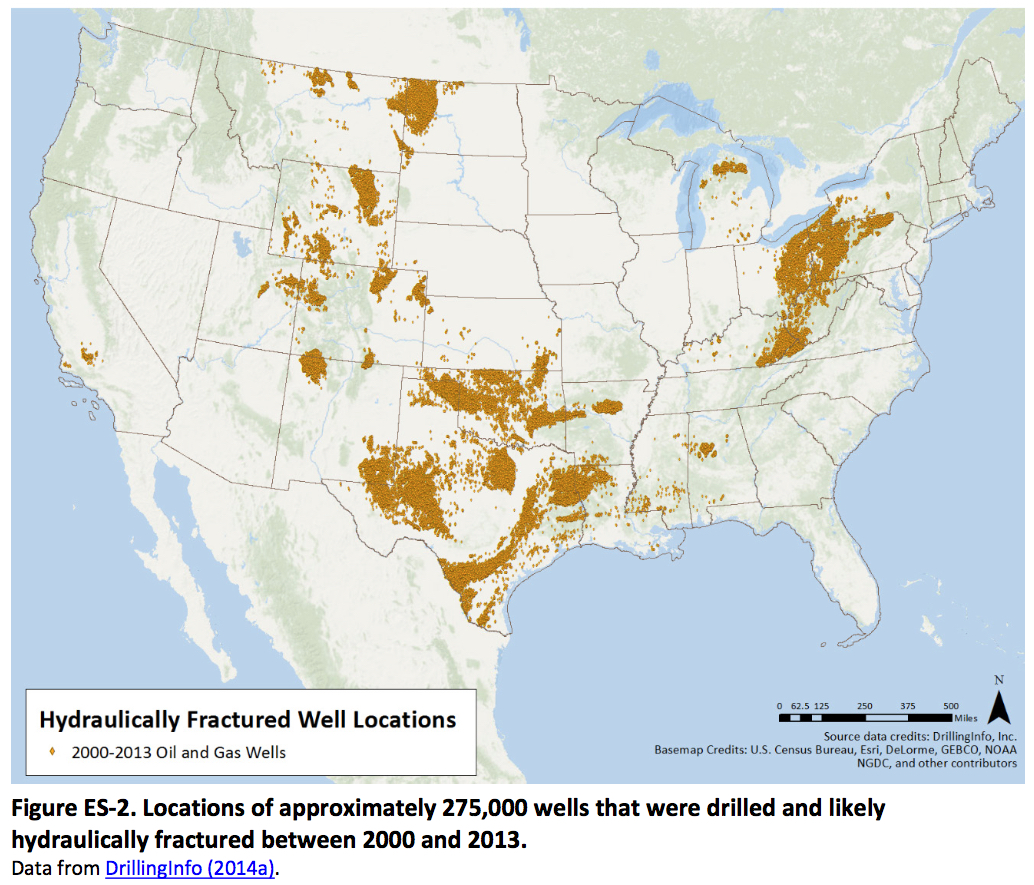Connecting state and local government leaders
The agency’s conclusions in a five-year study were knocked by a leading oil and gas industry group and praised by environmental advocates.
Hydraulic fracturing for oil and natural gas can affect the nation’s drinking water under some circumstances, but to what extent is unclear due to a lack of information, according to study findings the U.S. Environmental Protection Agency released Tuesday.
The agency stressed that “uncertainties and data gaps limited EPA’s ability to fully assess impacts to drinking water resources both locally and nationally.” Missing from Tuesday’s report was language featured in a draft issued last year that said the agency did not find evidence hydraulic fracturing, or “fracking,” caused “widespread, systemic impacts” to drinking water.
EPA characterizes such “impacts” as changes in water quality or quantity.
Effects cited in the final report generally took place near hydraulically fractured oil and gas wells. These ranged from temporary changes in quality, to contamination that made private water wells unusable.

In the report EPA notes that, between 2000 and 2013, about 3,900 public water systems were estimated to have had at least one hydraulically fractured well within one mile of their source.
During those same years, about 275,000 wells were drilled and likely fracked, the report also says.
“This assessment is the most complete compilation to date of national scientific data on the relationship of drinking water resources and hydraulic fracturing,” Dr. Thomas A. Burke, science advisor and deputy assistant administrator of EPA's Office of Research and Development, said in a statement on Tuesday.
Congress called for the study in fiscal year 2010. It took about five years to complete.
The EPA’s findings were panned by the American Petroleum Institute, an industry group.
“It is beyond absurd for the administration to reverse course on its way out the door,” the American Petroleum Institute’s upstream director, Erik Milito, said in a statement Tuesday. He added: “Science and data clearly demonstrate that hydraulic fracturing does not lead to widespread, systemic impacts to drinking water resources.”
The group Clean Water Action took a different view.
"We've known for years that fracking and other oil and gas activities are a threat to drinking water," John Noel, the group’s national oil and gas campaigns coordinator said. "The final study discards the industry talking points that ignore the fact that fracking has the potential to contaminate water during every step of the process.”
Fracking was first developed in the 1940s. But the use of the technique surged during the last decade amid advances in technology that made once hard to reach oil and gas deposits more accessible.
The process involves injecting high pressure fluid into underground rock formations that contain fossil fuels. The fluid is commonly a mix of water, chemicals and sand.
The nearly 700-page EPA report highlights a number of ways fracking activities can affect drinking water with various levels of frequency and severity.
Some of these include: fracking when or where water supplies are low; spills of fracking fluids, chemicals, or "produced water," which comes to the surface from oil and gas wells; injection of fracking fluids directly into groundwater; and discharging inadequately treated fracking wastewater into surface water.

One reason for the gaps in data, according to the report, is limited information on the location of fracking-related activities. This information, the EPA said, is either not collected, not publicly available, or prohibitively difficult to assemble.
Even in areas where fracking work is known to have occurred, the agency added, there is scarce data that could be used to assess chemicals in the environment before, during, and after that time.
As of last year, hydraulically fractured wells accounted for about two-thirds of the natural gas production in the U.S. and about half of the nation’s oil production, according to U.S. Department of Energy estimates released in May.
Much of the nation’s fracking activity is located in regional pockets, in places such as western Pennsylvania, eastern Ohio, and parts of Texas, Oklahoma and North Dakota.

As it blasted the EPA’s findings on Tuesday, the American Petroleum Institute gave a nod to president-elect Donald J. Trump, saying it looks “forward to working with the new administration in order to instill fact-based science back into the public policy process.”
Trump’s pick to lead the EPA, Oklahoma Attorney General Scott Pruitt, has had close ties to the fossil fuel industry and has fought Obama administration environmental initiatives.
The EPA noted Tuesday that the conclusions in its assessment were based on over 1,200 scientific sources, feedback from an independent peer review by its Science Advisory Board, stakeholder input and new research conducted for the study.
Bill Lucia is a Reporter at Government Executive's Route Fifty and is based in Washington D.C.

NEXT STORY: Trump’s Infrastructure Ambitions Could Be a Boon for Slow SLED Purchasing




